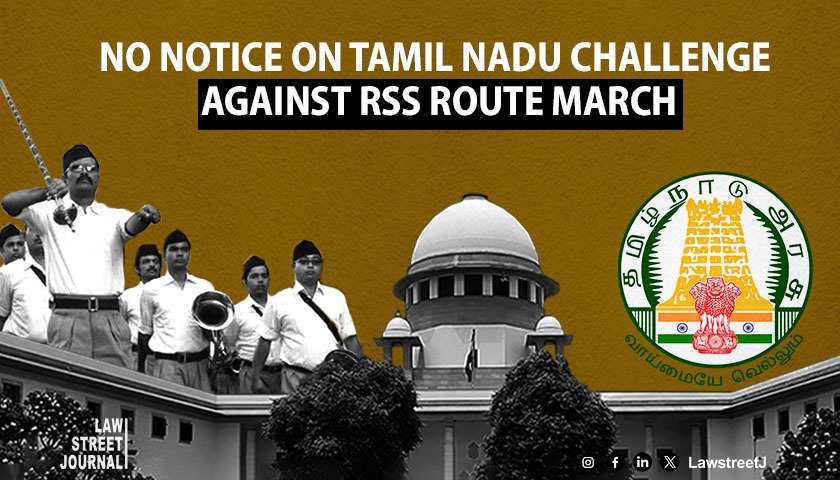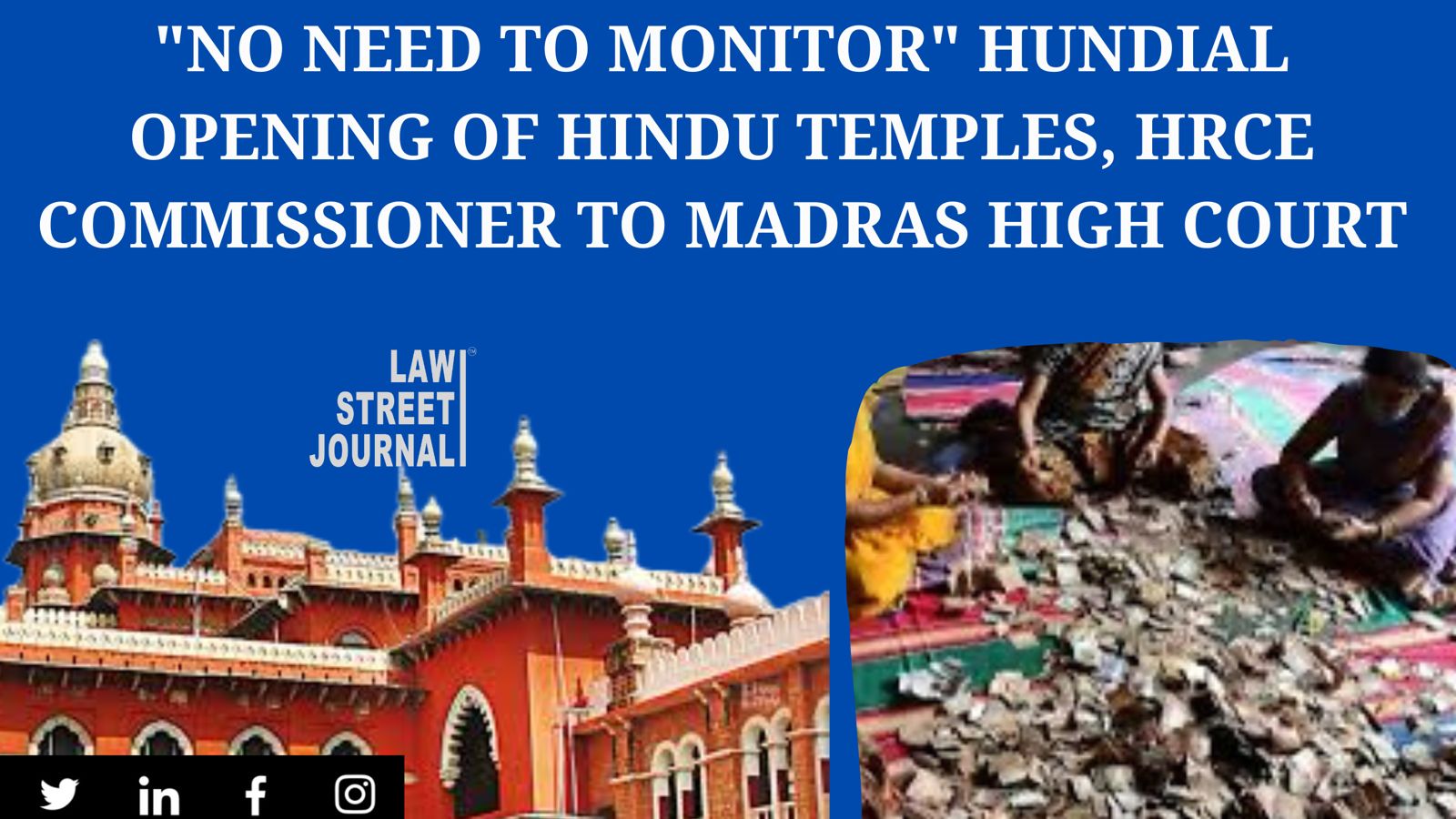The Palani temple in Tamil Nadu is not a picnic spot, Madras High Court said while ordering the state government and the State Hindu Religious and Charitable Endowments (HR&CE) Department to make sure non-Hindus are not allowed to enter beyond the flagpole area of the temple.
Justice S Srimathy said that Hindus too like other communities have the right to practice their religion without interference. Here are the other directions passed by the Court:
i) The respondents are to have Boards indicating that Non-Hindus are not allowed inside temple after Kodimaram in the entrance of the temples, near Kodimaram and at prominent places in the temple.
ii) The respondents are directed not to allow the Non-Hindus who do not believe in Hindu religion.
iii) If any Non-Hindu claims to visit particular deity in the temple, then the respondents shall obtain undertaking from the said Non-Hindu that he is having faith in the deity and he would follow the customs and practices of Hindu religion and also abide by the Temple customs and on such undertaking the said Non-Hindu may be allowed to visit the temple.
iv) Whenever a Non-Hindu is allowed based on the undertaking the same shall be entered in the register which will be maintained by the temple.
v) The respondents to maintain the temple premises by strictly following the agamas, customs and practices of the temple.
The Court was hearing a plea seeking to direct the respondents to permit the Hindus alone to the Hill Temple Premises and its sub temples.
A Muslim family with many ladies in "Burquas," according to Senthilkumar's petition, had bought tickets at the train station to go to the Palani hilltop, which is the location of the temple, in June of last year. When the police attempted to stop them, they claimed that there was no board preventing non-Hindus from entering.
Senthilkumar informed the court that the family wanted to visit the summit to take photos.
In the judgement, the court highlighted two incidents: the Arulmighu Meenakshi Sundareswarar Temple in Madurai, where a group of people from a different religion entered with "their sacred book" near the sanctum sanctorum and attempted to perform their prayers before it, and the Arulmighu Brahadeeswarar Temple, where a group of people from a different religion treated the temple premises as a picnic spot and had nonvegetarian food inside the temple premises.
Noting this, the Court said that these incidents are absolutely interfering in the fundamental rights guaranteed to the Hindus under the Constitution. Explaining this, the Court said,
These incidents are absolutely interfering in the fundamental rights guaranteed to the Hindus under the constitution. The Hindus also have fundamental right to profess and practice their religion freely and propagate their religion without interfering in their way of practice. Therefore the Hindus have right to maintain their temples as per their customs, practices and Hindu Religious and Charitable Endowment Department is having duty to protect the temples from such unwanted incidents. In fact in the above narrated incidents the Department had failed to protect the fundamental rights guaranteed under the constitution.
During the hearing, the State government contended that installing such boards around the temple and the hilltop where it is situated, might hurt the religious sentiments of visitors. However, the court did not agree with this argument. The Court said that when a non-Hindu enters the temple premises, it would hurt the sentiments of a Hindu.
The respondents are confusing the issue. If a non-Hindu is not having faith and decline to follow the customs and practices of the Hindu religion and decline to follow the Temple Customs, then the said non-Hindu cannot be allowed and hence there is no question of hurting his sentiments. On the other hand if the non-Hindu who declines to follow the customs and practices of the Hindu religion and decline to follow the Temple Customs is allowed inside the temple, it would affect the sentiments of the large number of Hindus who practices the faith as Hindu reverently. This would affect the right of Hindus guaranteed under the Constitution of India. The respondents are worried about the sentiments of nonHindu who is not having faith in Hindu religion. By pleading so the respondents are failing to protect the sentiments of the Hindus.
When it was argued that many foreigner tourists come to Hindu temples to admire and appreciate the architectural monuments of the temple, court said that temple premises cannot be used as picnic spot or tourist spot and the temples premises ought to be maintained with reverence and as per agamas.
But the customs and practice of their respective religion cannot be interference with and any interference ought to be curtailed. The Temple is not picnic spot or tourist spot. Even in Arulmighu Brahadeeswarar Temple, Thanjavur the other religion people are allowed to admire and appreciate the architectural monuments of the temple, but not after Kodimaram. While admiring the architectural monuments the people cannot use the premises as picnic spot or tourist spot and the temples premises ought to be maintained with reverence and as per agamas. Therefore the rights guaranteed under the Articles is not granting any right to the respondents to allow the other religion people if they do not have any faith and belief in the Hindu religion.
The Court also rejected the respondents argument to limit these directions to the Palani Temple alone.
But the issue raised is larger issue and the same ought to be applicable to all Hindu temples, hence the plea of the respondents is rejected. As stated supra restrictions would ensure communal harmony among different religions and ensure peace in the society, the Court added before concluding.

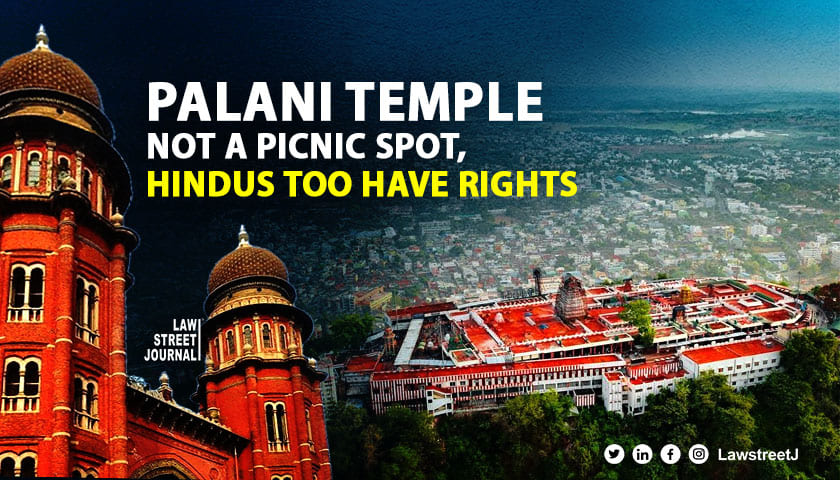
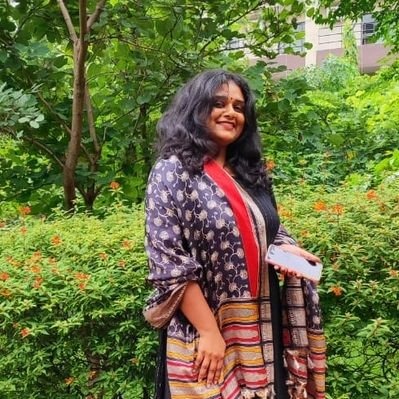




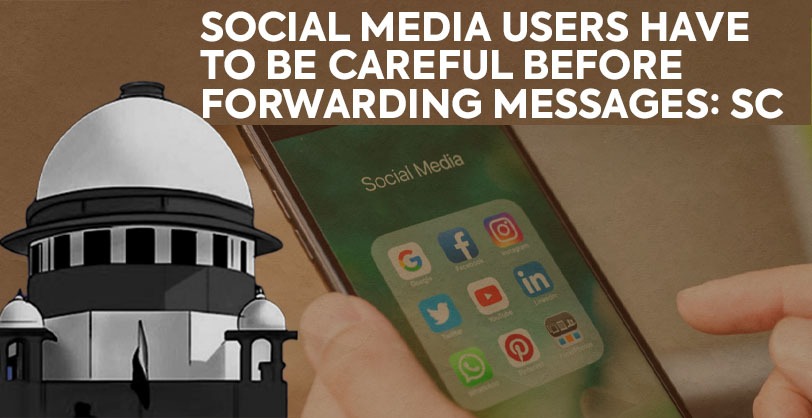
![Madras High Court Directs Tamil Nadu Government to Ensure Quota for Transgenders in Local Body Elections [Read Order]](/secure/uploads/2023/08/lj_2507_7a03d113-08b1-4670-b6fb-9058aee481d0.jpg)
